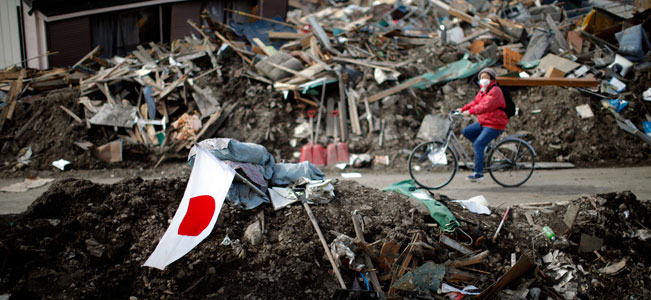
TOKYO – Japan's government vowed Tuesday to overhaul nuclear safety standards once its radiation-leaking reactor complex is under control, admitting that its safeguards were insufficient to protect the plant against the March 11 tsunami.
The struggle to contain radiation at the complex has unfolded with near-constant missteps — including two workers drenched Tuesday with radioactive water despite wearing supposedly waterproof suits. The unfolding drama has drawn increasing criticism of the utility that owns the plant as well as scrutiny of Japan's preparedness for nuclear crises.
"Our preparedness was not sufficient," Edano told reporters. "When the current crisis is over, we must examine the accident closely and thoroughly review" safety standards.
An AP investigation found that Tokyo Electric Power Co. officials had dismissed scientific evidence and geological history that indicated that a massive earthquake — and subsequent tsunami — was far more likely than they believed.
That left the complex with nowhere near enough protection against the March 11 tsunami.
A massive offshore earthquake triggered the tsunami that slammed into Japan's northeast, wiping out towns, killing thousands of people and knocking out power and backup systems at the coastal nuclear power plant.
More than 11,000 bodies have been recovered, but officials say the final death toll is expected to exceed 18,000. Hundreds of thousands of people remain homeless, their homes and livelihoods destroyed. Damage could amount to $310 billion — the most expensive natural disaster on record.
The mission to stabilize the power plant has been fraught with setbacks, as emergency crews have dealt with fires, explosions and radiation scares in the frantic bid to prevent a complete meltdown.
The plant has been leaking radiation that has made its way into vegetables, raw milk and tap water as far away as Tokyo. Residents within 12 miles (20 kilometers) of the plant have been ordered to leave and some nations have banned the imports of food products from the Fukushima region.


